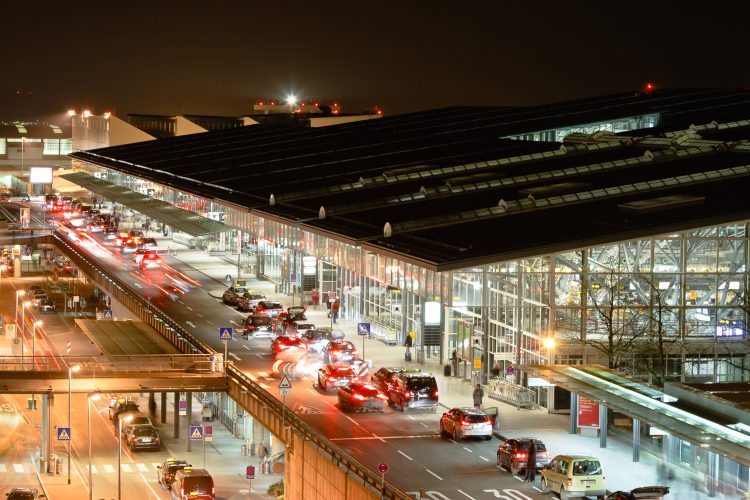World’s first electric refuelling 40 m³ vehicle put into operation at Stuttgart Airport
- Like
- Digg
- Del
- Tumblr
- VKontakte
- Buffer
- Love This
- Odnoklassniki
- Meneame
- Blogger
- Amazon
- Yahoo Mail
- Gmail
- AOL
- Newsvine
- HackerNews
- Evernote
- MySpace
- Mail.ru
- Viadeo
- Line
- Comments
- Yummly
- SMS
- Viber
- Telegram
- Subscribe
- Skype
- Facebook Messenger
- Kakao
- LiveJournal
- Yammer
- Edgar
- Fintel
- Mix
- Instapaper
- Copy Link
Posted: 12 March 2024 | International Airport Review | No comments yet
This is the first time that ground operations can be carried out exclusively with electric vehicles.


The world's first fully electric refuelling vehicle in the 40 m³ category has been put into operation at Stuttgart Airport.
The world’s first fully electric refuelling vehicle in the 40 m³ category has been put into operation at Stuttgart Airport (STR) by Skytanking, one of the leading refuelling service providers in the aviation industry. This is the first time that ground operations can be carried out exclusively with electric vehicles. Stuttgart Airport is thus once again proving to be a pioneer in the field of electric GSE.
What are the features of the new electric refuelling vehicle?
The new electric refuelling vehicle weighs 52 tonnes and has a capacity of 40,000 litres. It was developed by Esterer, a manufacturer of vehicle bodies, together with Daimler Truck with the aim of supplying a wide range of aircraft with fuel. It was implemented as part of the airport’s “finalize! research project” together with the University of Aachen and Skytanking. The project is funded by the German Federal Ministry for Economic Affairs and Climate Action.
What are people saying?
Winfried Hermann, Minister of Transport of Baden-Württemberg: “I am very pleased that Stuttgart Airport has created the conditions to handle all aircraft handling steps emission-free and climate-friendly with electric vehicles. Stuttgart Airport is setting a good example for electric mobility.”
Christoph Lindke, Managing Director Skytanking: “At Skytanking, we are consistently implementing our strategy to electrify our fleet of up to 500 aircraft refuelling vehicles. At STR, we are proud to have been a relevant player in the development of the first all-electric airfield tanker with an impressive capacity of 40,000 litres. In addition to environmental protection, another important benefit of electrification is the protection of our employees from exhaust fumes and noise.”
Julia Esterer, Managing Director of Dr.-Ing. Ulrich Esterer GmbH & Co. KG: “Today is the starting point for our joint development. Esterer has focused on the efficient use of the given high-voltage technology.
Another important component is the creation of a safety concept for airport use. I am sure that the data analysis will show that our concept not only paves the way to carbon neutrality but will also be
economically viable for this application.”
Franziska Cusumano, Head of Mercedes-Benz Special Trucks and Custom Tailored Trucks: “We are very pleased that our eEconic is in demand for more and more applications and is now being used locally carbon neutral with a tank body for the first time. As an all-electric truck, the eEconic eRefueller will help to reduce emissions during ground handling at Stuttgart Airport.”
Ulrich Heppe, CEO of Stuttgart Airport: “With the “finalize! project”, we have reached another important milestone on the way to emission-free traffic on the ramp. We will not rest on our laurels – instead we will continue to bring down the emissions of our operations.”
Stuttgart Airport’s carbon-controlled strategy
With its STRzero carbon strategy, Stuttgart Airport has set the goal to reduce its directly caused
greenhouse gas emissions to zero by 2040 and to accelerate technological progress towards more climate friendly flights. By 2030, all ground handling at Stuttgart Airport is to be carbon neutral. Between 2009 and 2022, Stuttgart Airport reduced carbon emissions from ground handling traffic by 83 percent, primarily by using electric vehicles and by switching to stationary ground power. Even heavy special vehicles, such as those used by the airport fire department, will be electric in the long run.
Related topics
Emissions, Innovation, New technologies, Sustainable development
Related airports
Related organisations
Dr.-Ing. Ulrich Esterer GmbH & Co. Fahrzeugaufbauten und Anlagen KG, Esterer, Federal Ministry for Economic Affairs and Climate Action, Mercedes-Benz, Minister of Transport, Skytanking
Related regions
Related people
Christoph Lindke, Franziska Cusumano, Julia Esterer, Ulrich Heppe, Winfried Hermann
















